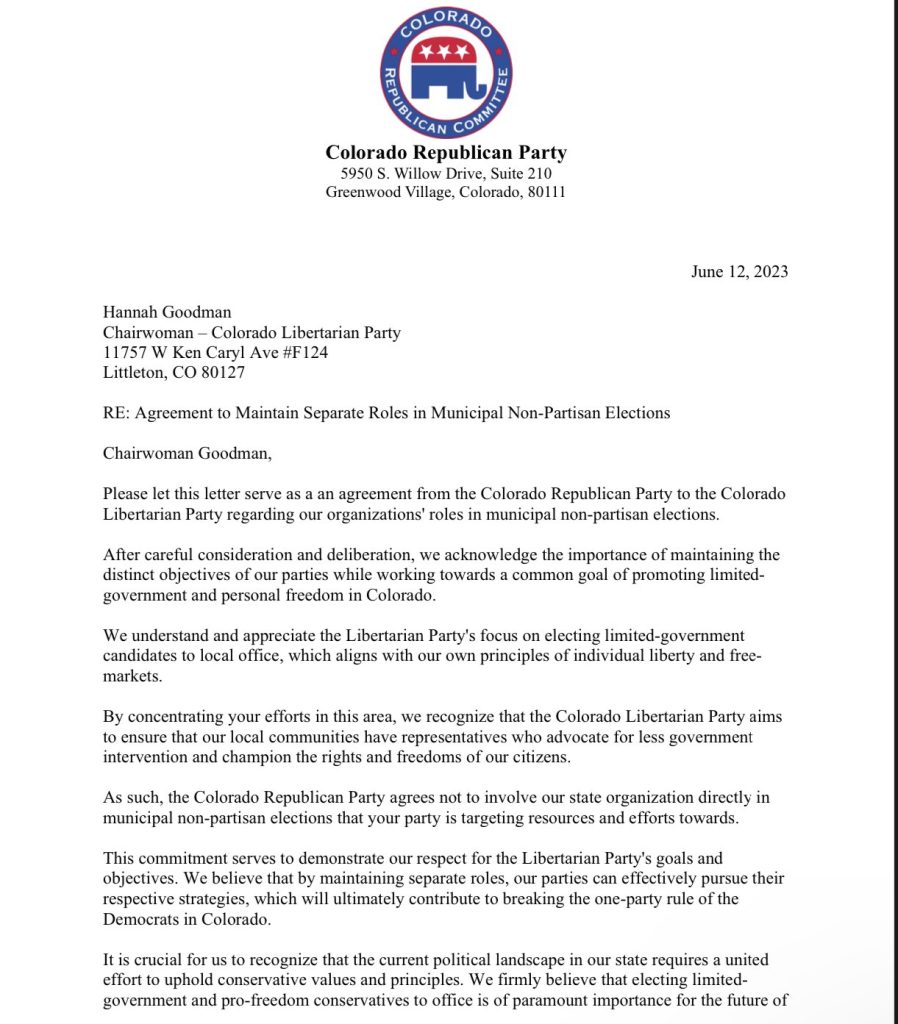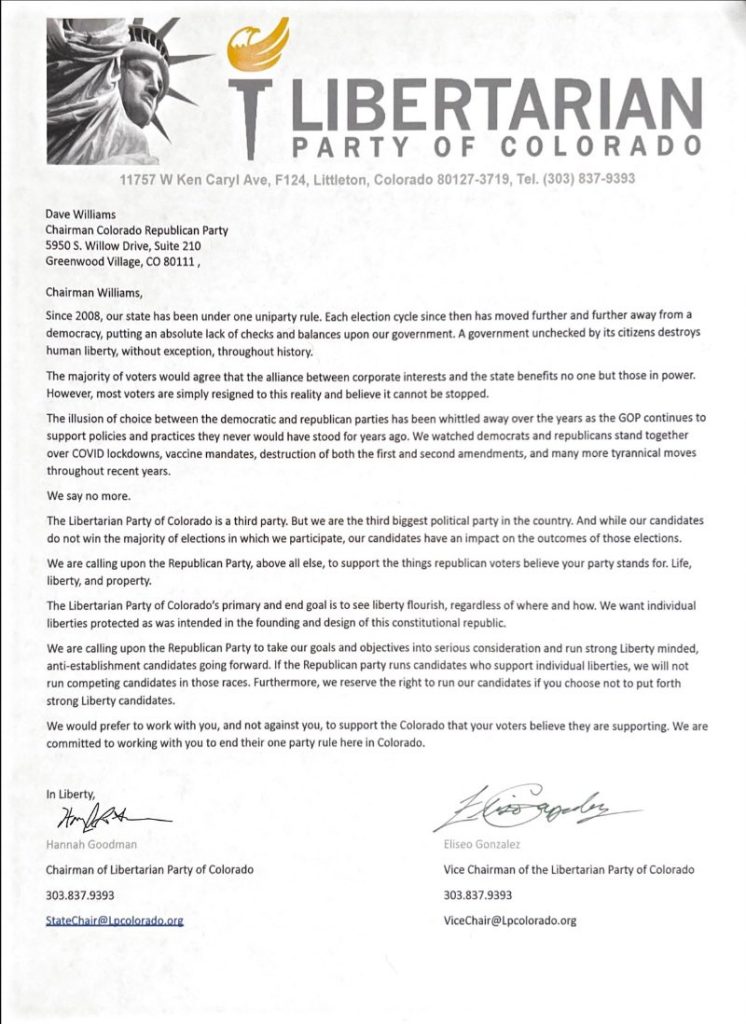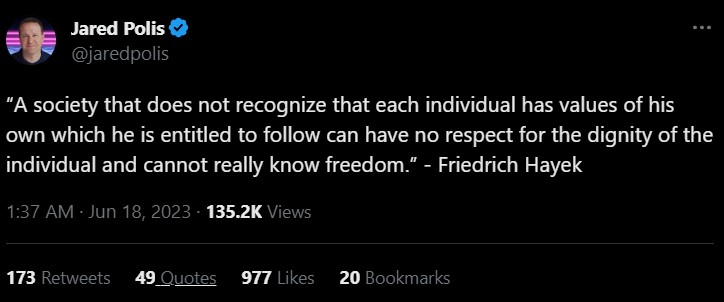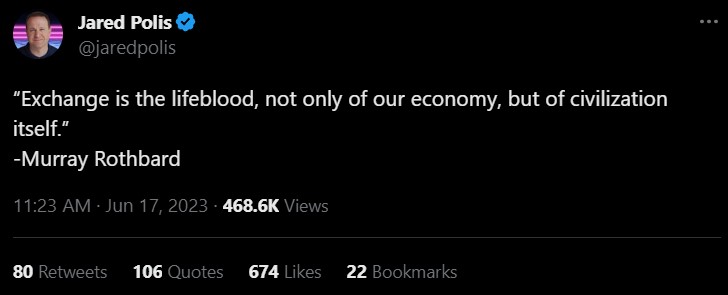In my first article, I discussed the disunity among the ‘freedom movement’ and the loosely aligned ‘freedom’ parties. This sparked further discussion, culminating in the beginning of a potential coalition for federal elections. While that seems to have fizzled out for now, political coalition-building and alliance-forming is gaining traction across the Pacific.

COLOARDO FOR LIBERTY
In the US state of Colorado, two unlikely bedfellows have decided that one-party Democratic rule over the State needs to end. The Colorado Libertarian Party and the Republican Party have brokered an historic agreement regarding local, state and congressional elections.



Without getting into the complexities of US electoral systems, the Libertarians have agreed not to run ‘spoiler candidates’ in many districts provided the Republicans nominate genuine “liberty-focused” candidates. Think more Ron Pauls and fewer Mitt Romneys.
This has attracted the ire of Democrat Governor Jared Polis. Following the announcement, Polis spent the next few days quoting Rothbard and Hayek, pretending to be a libertarian and obviously hoping Coloradans would have forgotten about his draconian Covid restrictions and subversive property tax increases.


Regardless of the political outcome of this alliance, the fact it has forced the establishment to compete on the principles of liberty is already a huge win.
BRINGING IT HOME
How a liberty coalition might operate in Australia has already been aptly outlined by none other than a former Senator. And unlike the US, Australia has the massive triple benefits of preferential voting, proportional voting and formal coalition tickets.
Preferential voting means there is no such thing as ‘spoiler candidates’ in our federal electoral system. Proportional voting, which is relevant in the Senate and most state-level upper houses, means the quotas required to get elected are far lower than those in the US. A formal coalition ticket is the mechanism used by the Liberal and National parties to run Senate candidates from both parties in a combined group.

Australia also does not have the same difficulties with ballot access for minor parties that are found in the US. In many congressional districts you will only be presented with Republican and Democrat candidates on the ballot, as they often team up to ensure few, if any, alternative candidates can even nominate.
EYES ON THE PRIZE
Of course, the Colorado announcement has not exactly gone down swimmingly with everyone. Libertarians, infamous for their hatred of each other above all else, are unsurprisingly splintered. Many are, understandably, quite hesitant about getting into bed with the ‘Diet Democrats’.
However, over time the benefits of this arrangement are becoming too hard to ignore. Principles are winning over partisanship, and now murmurs of Libertarian-Republican alliances are being heard across the US, with Minnesota apparently next in line.
The cultural shift is an even bigger win than any political outcome that might stem from this deal. The 2024 Colorado election has now turned into a referendum on who has the most libertarian values. Even more than that, liberty-minded members of both the GOP and Democrats now have the impetus to demand change within their respective parties.
The battle for liberty must be fought on all fronts, and requires the support of those working to change from within.
PRINCIPLES OVER PARTY
A lot can be learned from Colorado, and I hope others within the ‘freedom movement’ are watching this arrangement closely. Australia’s unique electoral system is the perfect opportunity to implement an even better alliance, without even needing to rely on a major party.
Not only does having the balance of power in the Senate and state upper houses provide an anchor of liberty, just as the Greens provide an anchor of socialism, but like the cultural influence from our friends in Colorado, it provides an impetus for others to begin discussing liberty in political party rooms, executive meetings and membership conferences – as well as around the dinner table.
And, as has happened in the Centennial State, perhaps all political candidates will soon be competing over who cares most about liberty.





What Americans do, surely Australians can copy!